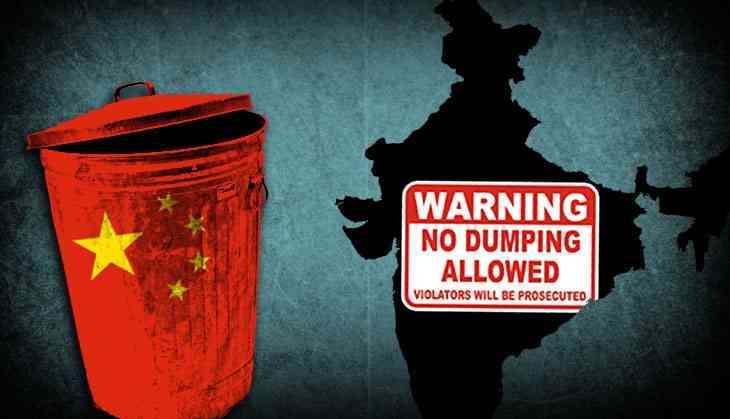As the standoff at Doklam continues, India may just hit out at China economically

Social networking sites and messaging apps are full of forwards asking Indians to not purchase the Chinese products to retaliate against China's standoff with India at Doklam.
In this backdrop, news of Indian anti-dumping authorities recommending action against key Chinese components for windmills, and the consideration of a similar petition for solar equipment looks like the beginning of an economic war between Asia's two powerhouses.
India makes its stand
According to Economic Times, “The Directorate General of Anti-Dumping and Allied Duties (DGAD) has recommended imposing anti-dumping duty on castings imported from China for use in the construction of wind turbines."
The duties suggested, as reported by the newspaper, “vary between 6.57% and 32.95% for different Chinese companies, six of which are specifically named.”
Going by China's state-run newspaper, Global Times, India has initiated 12 such investigations against Chinese products.
Since April 2015, the Indian government has taken a slew of measures to check dumping by Chinese steel companies at Indian shores, by way of raising import duty, imposing minimum import price, and applying anti-dumping and safeguard duties on imports.
To give a further fillip to the domestic industry, the government in May launched a policy that gives preference to indigenous steel makers in government projects. As a result, domestic gas company GAIL barred Chinese companies from its pipeline projects worth Rs 3,000 crore in favour of domestic firms.
So the question is, has India initiated an economic retaliation against world's largest exporter of goods? And can India truly cause trouble for China with this tactic?
Not a permanent tactic
India suffers a trade deficit of $51 billion with China. For many years, there have been complaints from Indian companies against Chinese products that are available at less then half the price of products produced in India. At times of political tension between the two nations, such calls become vociferous and demanding.
But it is important to understand that Chinese products help Indians in setting up various industries that otherwise would not be economically viable - be it electronic items, capital goods and other intermediate goods.
According to Jayant Dasgupta, India's former ambassador to the World Trade Organization, the clause of anti-dumping duties has its own periodicity - that you cannot have those duties imposed permanently.
Moreover, there have been instances when India has rejected the recommendations of the DGAD to impose anti-dumping duties on products from other countries keeping in mind the larger interests of the economy.
“A country has to see whether the product which is coming from another nation adds to the overall economic contribution,” adds Dasgupta
“Whether there is dumping and injury to domestic industry is decided by the quasi judicial body, but measures against that are taken by the ministry of finance,” says DK Nair, an expert on WTO and international trade.
Therefore, even if the DGAD recommends anti-dumping duties against the Chinese products, the final call would be taken by the ministry of finance.
Will the finance ministry do it?
In the case of steel products, the decision to impose anti-dumping duties was taken keeping in mind low demand for steel in the Indian infrastructure sector and overcapacity of Indian players. However, in the case of solar and windmills, the situation is different.
Over the past two years, India has witnessed a dramatic fall in renewable energy tariffs, especially solar, due to the availability of cheap finance from Western countries and low cost solar panels available from Chinese companies. Without the combination of these two components, India would never have seen its solar tariffs fall to less than Rs 2.5 per unit.
India has set a humongous renewable energy generation target till 2022. To meet it, either the country will have to set up its own solar panel generation capacity at a very fast pace, or it will have to let go of its targets.
The same logic applies in most industries. The high trade deficit between India and China is a cause of concern for the former, but an outright trade war by way of using anti-dumping duty would be impractical in the short to mid-term.
The anti-dumping duties could also fuel inflation and make many products unaffordable in the local economy. That is exactly why governments have to be very careful while using this tool.
First published: 4 August 2017, 20:35 IST

